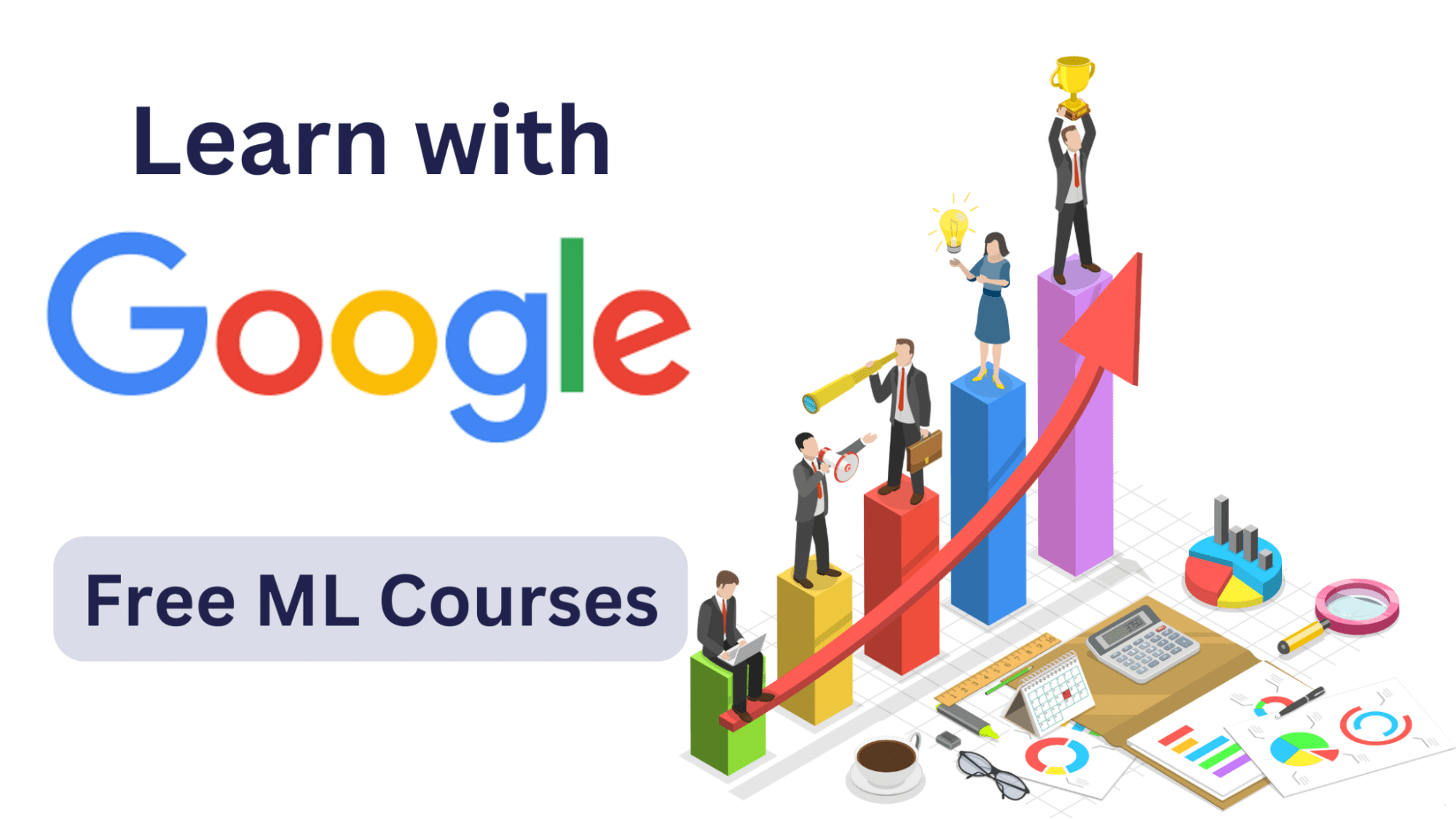
Image by Author
As a machine learning engineer, you can build effective ML solutions to real-world challenges. Sounds exciting, yes? So how do you become a machine learning engineer, and what should you learn?
This compilation of free courses from Google will help you go from a machine learning newbie to a skilled ML engineer who can understand and frame real-world problems as problems that can be tackled using machine learning. These courses will also help you learn advanced machine learning techniques, along with designing, testing, and debugging machine learning pipelines.
Let’s begin.
If you’re new to machine learning, consider starting with this beginner-friendly Introduction to Machine Learning course.
In this course, you’ll learn:
- The types of machine learning
- Key concepts of supervised machine learning
- How machine learning is different from traditional problem solving approaches
Link: Introduction to Machine Learning
The Machine Learning Crash Course is a hands-on introduction to machine learning using the TensorFlow framework. You’ll learn how machine learning algorithms work and how to implement them in TensorFlow.
This course is divided into the following sections:
- Machine learning concepts
- Machine learning engineering
- Machine learning in the real world
Link: Machine Learning Crash Course
Given a real-world problem, how do you solve it using a machine learning framework? Firstly, how do you even decide if machine learning is even necessary at all to solve the particular problem?
That’s where the course on Machine Learning Problem Framing becomes relevant. In this course, you’ll learn how to:
- Decide if machine learning is a good solution to the problem you’re trying to solve
- Frame machine learning problems
- Pick the right machine learning model
- Define success metrics for the model
Link: Introduction to Machine Learning Problem Framing
Machine learning is much more than throwing in raw data and training ML algorithms on it. You have to spend time to understand your data and focus on feature engineering to identify the most relevant and important features, process, and transform them as needed.
The Data Preparation and Feature Engineering course will teach you the following:
- Impact of data data quality and data size
- Data collection and transformation within the ML workflow
- Collecting raw data and constructing usable dataset from it
- Handling imbalanced data
- Handling numerical and categorical data
Link: Data Preparation and Feature Engineering
Debugging and testing machine learning systems is more involved and different from testing traditional software systems.
The course on Testing and Debugging machine learning models will teach you the following:
- Debugging machine learning models
- Implementing testing to help with debugging
- Optimizing machine learning models
- Monitoring model metrics
Link: Testing and Debugging
Clustering is one of the most widely used unsupervised learning algorithms. In the hands-on introduction to clustering in the Clustering course, you’ll learn the following:
- Clustering for machine learning
- Preparing data
- Defining similarity
- K-means clustering
- Evaluating results of clustering algorithms
Link: Clustering
From recommendations on Amazon and other online shopping sites to series recommendations on Netflix, recommendation systems are very relevant in our day-to-day lives.
The Recommendation Systems course will teach you what goes into such recommendation systems and how you can build your own applications. Here’s an overview of what you’ll learn:
- Components of a recommendation system
- Embeddings
- TensorFlow implementations of recommendation algorithms
Link: Recommendation Systems
I hope you found this round-up of free courses helpful. Most of these courses are designed to give you enough opportunities to practice and build your own projects.
So try building your own projects to apply what you have learned in the course. This will help you both to reinforce your understanding and also build out your project portfolio. Happy learning and coding!
Bala Priya C is a developer and technical writer from India. She likes working at the intersection of math, programming, data science, and content creation. Her areas of interest and expertise include DevOps, data science, and natural language processing. She enjoys reading, writing, coding, and coffee! Currently, she’s working on learning and sharing her knowledge with the developer community by authoring tutorials, how-to guides, opinion pieces, and more. Bala also creates engaging resource overviews and coding tutorials.

